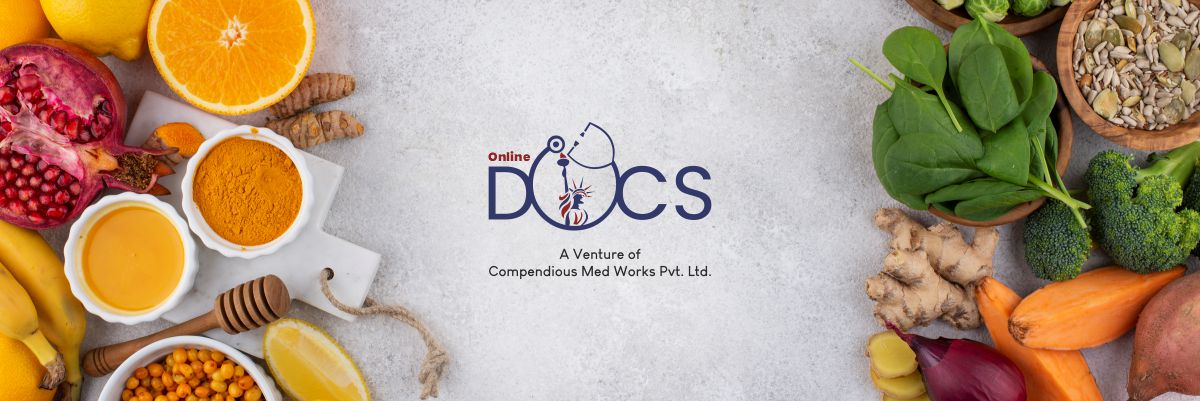BLOGS
Top 10 Foods for Anxiety Disorder

Introduction
Anxiety disorders are very common, affecting around 40 million people in the United States alone. These conditions are characterized by worry, nervousness, and dread. Anxiety disorders can be treated with medication or therapy and managed through diet changes.
In this article, we'll discuss foods that help manage anxiety conditions such as depression and panic attacks! So let's get started:
Salmon
Salmon is high in omega-3 fatty acids, which are essential for the brain. Omega-3s help to reduce anxiety and depression by reducing inflammation in the brain. They also have a calming effect on your mind, making it easier to fall asleep at night or wake up with less grogginess during the day.
If you're looking for an easy way to ensure your body gets enough omega-3s daily, salmon should be top of your list!
Turmeric
Turmeric is a spice that you may have used in Indian cuisine. It’s been used for centuries in India for its medicinal properties, and it has been shown to reduce inflammation in the brain.
In addition to reducing inflammation, turmeric can help with anxiety and depression. One study found that people who took curcumin supplements had less anxiety than those who did not!
Dark Chocolate
Dark chocolate is one of the healthiest foods and is also good for your anxiety disorder. Dark chocolate has been shown to help with stress and anxiety by helping you feel better about yourself. You can boost your mood with this sweet treat—and if that doesn't work for you, at least you'll be able to sleep better at night!
Dark chocolate contains phenylethylamine (PEA), a chemical produced in the brain when we eat certain foods. PEA causes feelings of happiness by interacting with neurons in our brains. This could be why eating dark chocolates can reduce feelings of sadness and depression while boosting our moods!
Chamomile Tea
Chamomile tea is a great anxiety reliever. It’s been proven to reduce anxiety, and you can use it in many different ways. You can drink hot or cold chamomile tea, make it with fresh or dried flowers, and even add lemon juice or honey to sweeten the flavor.
Yogurt
Yogurt is a good source of calcium, which helps with anxiety. It also has probiotics and omega-3 fatty acids to help improve digestion and reduce anxiety. Yogurt can be eaten as a snack or part of your meal.
Chia Seeds
Chia seeds are rich in omega-3 fatty acids, which are known to reduce inflammation and depression. They also contain a type of fiber called beta-glucan that can help to lower blood sugar levels and improve your mood.
In addition to these health benefits, chia seed oil is an excellent source of omega-3s. Omega 3 fatty acids are essential for optimal brain function, but they're hard to get enough of through diet alone (you need about 1 gram daily). Studies have found that people with anxiety disorders often have low omega 3s in their blood—and chia seeds can help increase those levels!
Pumpkin Seeds
Pumpkin seeds are rich in magnesium, which is good for your health. Magnesium can help you sleep better, relax and feel less anxious.
Walnuts
Walnuts are high in omega-3 fatty acids, which help to reduce stress and anxiety. Omega-3 fatty acids also have anti-inflammatory properties that can help reduce pain and inflammation.
Walnuts are also an excellent source of antioxidants, which can help fight free radicals in the body that lead to inflammation and other health problems.
Green Leafy Vegetables
Green leafy vegetables are rich in magnesium and can help reduce anxiety. They’re also a good source of folate, vitamin E (which is important for cardiovascular health), vitamin C (which has been shown to increase brain function), and phytonutrients such as carotenoids and flavonoids that may play a role in improving mood.
Asparagus
Asparagus is a great source of vitamin B6 and folate, which are both essential for the production of serotonin. Serotonin is known as the "happiness hormone" because it helps regulate our moods, energy levels, and sleep patterns.
Asparagus also contains magnesium, potassium, and fiber—all three are important to keep your body running smoothly! Magnesium helps regulate muscle contraction (which can be helpful when you have anxiety), potassium regulates blood pressure levels (also important if you have anxiety) and fiber helps keep digestion moving smoothly through your system so that there's no bloating or discomfort in any area of your body by absorbing excess water from the food digestion process
Incorporate these foods into your diet to help manage anxiety
Omega-3 fatty acids
B vitamins (B1, B2, B3, B6)
Magnesium
Calcium
Vitamin D/sun exposure
Conclusion
Anxiety is a common experience, and many people can manage it with the help of certain foods and lifestyle changes. The key to managing anxiety is finding the right balance for your body, so consult your doctor or nutritionist before making any major changes in your diet.
